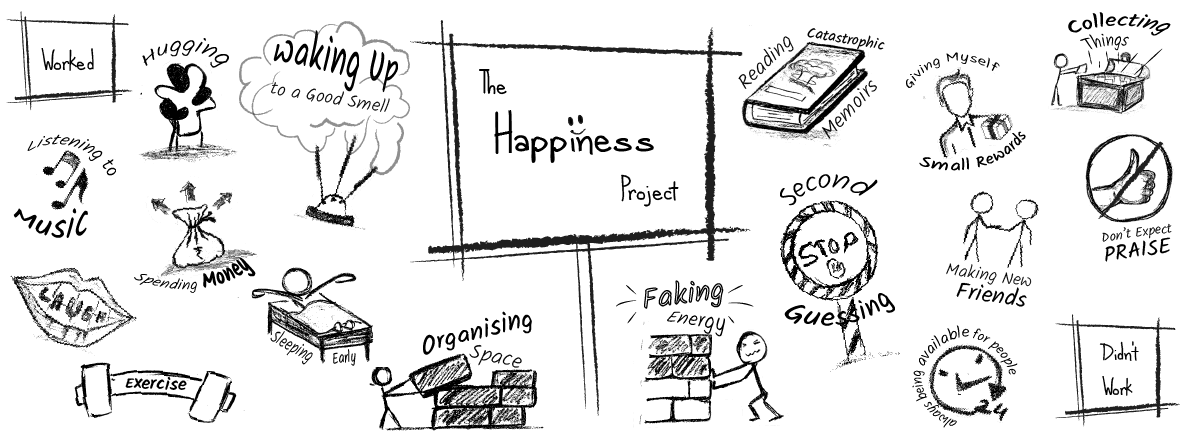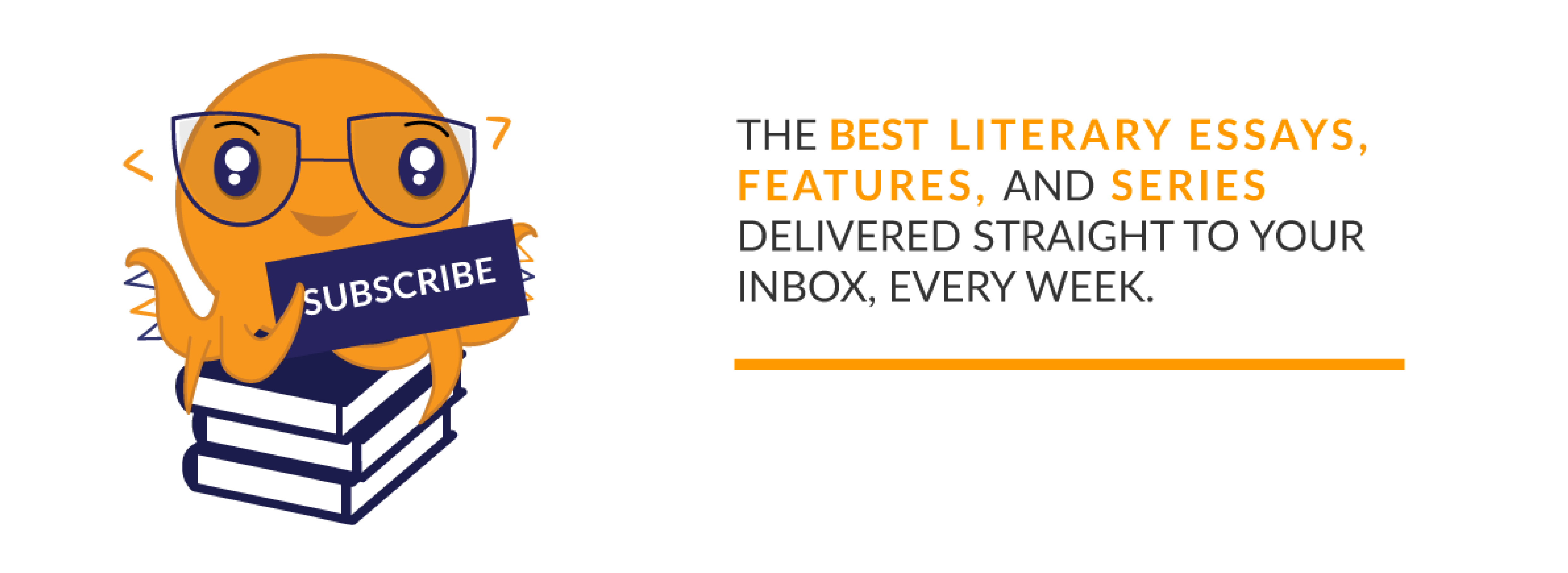JOURNAL
Lessons From The Happiness Project
Where I Learned That Even Small Changes Can Make A Big Difference
————————-
Tuesday | January 15, 2019
Book: The Happiness Project
Author: Gretchen Rubin
Over the past two weeks, as part of my experiment on turning to books in search of happiness, I have been reading The Happiness Project by Gretchen Rubin and putting some of Rubin’s suggestions into practice.
Gretchen Rubin doesn’t believe you have to uproot your life Eat, Pray, Love style to make yourself happy – in fact, it is entirely possible to do so within the sanctuary of your home. But first, you have to decide to make it happen, because the human mind is a stubborn piece of work. Rubin found a study that says that 50% of a person’s level of happiness is determined by genetics and cannot be changed. However, the good news is that 30% of it is based on how we think and act and, fortunately, that is something we can change.
I found The Happiness Project to be particularly useful in this regard because it highlighted the importance of making small, easy changes to increase your level of happiness.
Since, neither big lifestyle changes have to be made, nor are you required to spend too much money or time putting most of her suggestions into practice, you are more likely to take action.
While I couldn’t try everything she suggested, I did try many of them. Some things worked for me, and some didn’t. Even though I am sharing the results of my experiment with you, it would be worthwhile to remember that what works for me may not work for you and vice versa, but that doesn’t mean you should not try them. After all, we are all different people and our opinions, energy levels and situations also differ.

What Worked
1. Indulging in Self-Care
According to Rubin, self-care is not just expensive skin care routine and yoga and meditation, but it is also about taking small actions, which heighten your sense of well-being.
I’ve been trying to do exactly that by sleeping early, using scented candles or incense sticks, wearing comfortable clothes and listening to music.
What I came to understand by doing these things is:
I have found that playing soft and soothing tunes, or even listening to your favourite songs is an instant energy booster.
Lighting incense sticks or scented candles create an atmosphere of tranquillity and not only helps calm the mind but also boosts energy.
When it comes to sleeping early, keeping phones away at least an hour before going to bed proved to be very useful as I found myself less distracted.
2. Making Time For Passion
Fortunately for me, Rubin and I share similar passions and hobbies- reading and writing. In the book, Rubin talks of how, for one month, she wrote approximately 2,000 words per day, without worrying about the quality of her writing. She also gave up trying to impress people by reading what they thought was considered to be “proper” literature, and instead focussed on reading what she enjoys.
Following Rubin’s example, I focussed on getting all my ideas on paper first, and editing them later, instead of trying to perfect my writing, one line at a time.
In the wake of my experiment, instead of going along with other people’s opinion of what good literature is supposed to be, I decided to read what I actually wanted to read, because frankly, Murakami was making my brain implode. So I started re-reading YA, books with happy endings and even some fanfiction. I felt lighter after that.
3. Expressing love
Let me say this – I am terrible at showing affection. I don’t like it, it makes me extremely uncomfortable and I’d rather hug and kiss my books instead. Rubin found scientific evidence that hugging had positive effects, so I thought I’d give it a try. And sure enough, after hugging a few of my friends, I felt all warm and fuzzy inside and my stress melted away.
One suggestion that I found surprisingly simple but effective was to make an attempt to remember my friends’ birthdays and call them and wish them. When Rubin suggested it, I was sceptical but after having tried it, I can happily confirm that it does work. Not only were people delighted that I remembered their birthdays, but talking to my friends also contributed to my sense of well-being.
4. Spending Money On Myself
Rubin and I are so similar on many topics that I’m sure we must be soul sisters. Like me, she always thought that spending money on treating herself is a waste of money and would worry about future expenses. So, she decided to buy things which reminded her of happy moments or expensive stationery. In my case, I decided to Parks and Rec it, a.k.a. Treat Yo’ Self Day, and bought aromatherapy candles, nice headphones, some clothes that were comfortable and some that just looked sexy. I got some stationery too because I’m weird like that. And guess what, it made me happy. It worked because instead of worrying too much over future expenses or contingencies, I found a slice of happiness by buying things I needed and have put to good use since.
What Didn’t Work
1. Read memoirs of catastrophe
Reading memoirs of catastrophe made Rubin feel grateful for a healthy life and family and that, in comparison, her life was a bed of roses. However, this seemed a little morbid to me because I know from experience that reading about awful things happening to people would just make me depressed, as I don’t find peace in other people’s misery. Instead of feeling grateful for my life, I just end up feeling sorry for the people that went through it, and become depressed over the state of humanity.
2. Make new friends
Rubin finds making new friends energising and a source of endless support and opportunity. Personally, I find it difficult to make new friends as I am very particular about who I want to be friends with. I believe in having a few good friends as opposed to many acquaintances. I did try making some friends or at least converting some acquaintances into friends, but since we had very few interests in common, it all came crashing down. As of now, I think I am comfortable with the friends I have and not interested in forcing myself to find new ones.
3. Stop second guessing
When Rubin started her blog, she was consumed by her inner critic. She decided to ignore that nagging voice in the back of her head and continued doing her work. I’m glad it helped her, but it was a difficult thing to practice. Whenever I start something, even if it is a good idea, I am so consumed by fear that my mind creates negative scenarios where nothing will work out. I constantly focus on the things that won’t work, or second guess my talents and even what people might think. It’s a very long journey to stop second guessing, and might work after years of practice.
4. Focus less on potential bad outcomes
Thinking about what could go wrong consumes so much of our time that we forget to enjoy the moment. Disappointingly, I was so focussed on not worrying about the potential negative outcomes, that I unknowingly started concentrating even more on them. And once I started, there was no going back. It was almost as if the more I told myself not to focus on the future, more I worried about it, eventually getting caught in a vicious cycle. The moment lay forgotten and I found myself overcome with anxiety.
Did I Achieve My Goal?
My goal was to formulate a basic plan by identifying the roadblocks on my way to happiness and figure a plan of action to follow through as I strive for happiness. This book really helped me by not over complicating things and just suggesting simple actions to enhance happiness.
While I do have some ideas on what the roadblocks are, like creative blocks or my tendency to become irritable quickly, I have yet to pinpoint all of them. But I know where to start.
Will It Work For You?
If you’re like me and have just started thinking about your own happiness, take a look at the book as its simple and practical approach might surprise you and give you ideas for small changes that make a big difference.
The ‘small things’ approach is really great for people who get overwhelmed, as the book helps in breaking down our obstacles into small tasks and then tackling them one by one.
Next Steps
Since writing definitely makes me happy, I want to concentrate more on it. The biggest roadblock I face on my quest to become a better and more prolific writer is my habit of judging myself too harshly. After doing some research, I discovered that this is also known as The Resistance, a term popularised by Steven Pressfield in The War Of Art. That’s why I feel that this book would be perfect as my next read. Hopefully, it will help me break through the creative blocks which have held me back till now.
I would love to know your thoughts on what happiness means to you and what actions you’ve taken to be happier.
I will update my findings in my next journal entry scheduled to drop two weeks from now, on January 29, 2019. So, keep an eye out for it or even better, subscribe to The Curious Reader newsletter to have it delivered straight to your inbox.


Prasanna Sawant
Prasanna is a human (probably) who makes stuff up for a living. When she's not sleeping or eating, you'll find her in the quietest corner of the library, devouring yet another hardbound book. She vastly prefers the imaginary world to the real one, but grudgingly emerges from her writing cave on occasion. If you do see her, it's best not to approach her before she's had her coffee.
She writes at The Curious Reader. You can read her articles here.


Check your inbox to confirm your subscription
We hate spam as much as you hate spoilers!